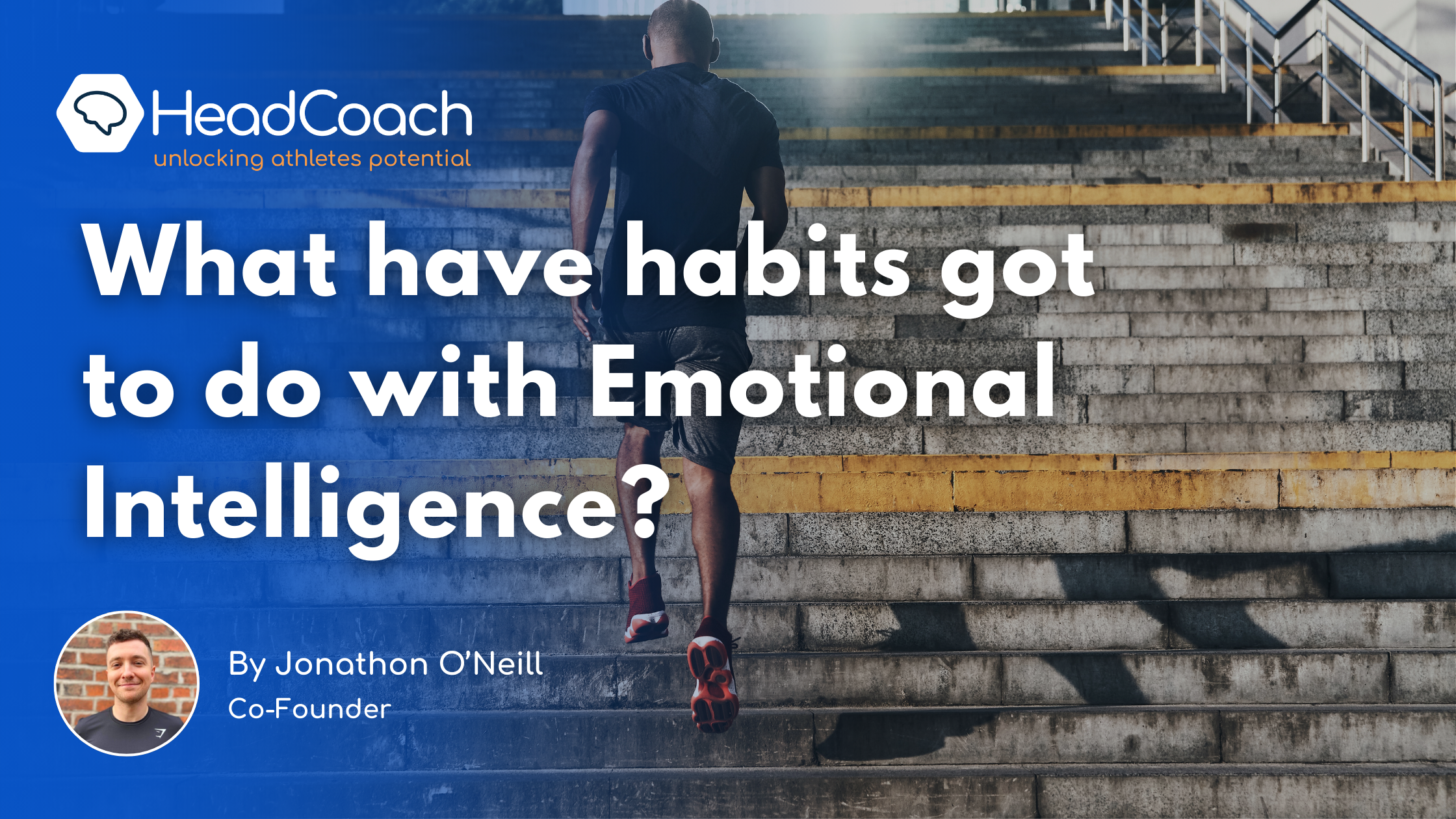Great question, which requires a great answer!
But, before we answer this question, we must first get clear on
1 - What are habits?
2- What is Emotional Intelligence?
Habits
Habits are behaviours that are hard wired over time into our brains that occur automatically, and mostly unconsciously. Our brains do not want to expend or waste energy, So once we take an action a certain amount of times, it becomes stored in our brain as an (unconscious) habit. We no longer have to think, as the environment provokes the behaviour automatically through the interaction between our brain and the environment. When we interact with the environment we respond to cues that send signals to our brain to activate certain situation action patterns. (Stimulus >response).
Why does the brain form habits ?
The brain creates habits to remove the need for thinking so we can allocate those resources to new problems it faces in the environment. Thinking is taxing.
Emotional Intelligence
Emotional intelligence is a person's ability to Recognize, Understand, Manage and effectively Express one's own emotions, as well as the capacity to effectively interact with others by understanding and managing their emotions.
While there are many models, from Meyer and Salovey, Bar-On, and Newman and Purse, they all recognize the importance of self regulation as a key component of Emotional Intelligence.
If we can all agree that self regulation is an integral part of Emotional Intelligence, we can also say that building and maintaining effective habits is a key component to managing and regulating our emotions and an integral part of our performance and wellbeing.
Taking a humanistic lens, Maslow in his work on human needs, suggests that negative emotions can arise from our needs not being met. These needs range from safety needs like food, shelter and spending time with loved ones, to growth oriented needs such as having a Purpose or doing meaningful work.
When looking at Maslows need's model, which has been further developed by Scott Kauffman, we can reverse engineer certain habits that if consistently maintained and built can help empower us to live a life full of purpose and meaning. As Lisa Feldman Barrett would say, "This is Emotional Intelligence in Action"





Leave a Comment